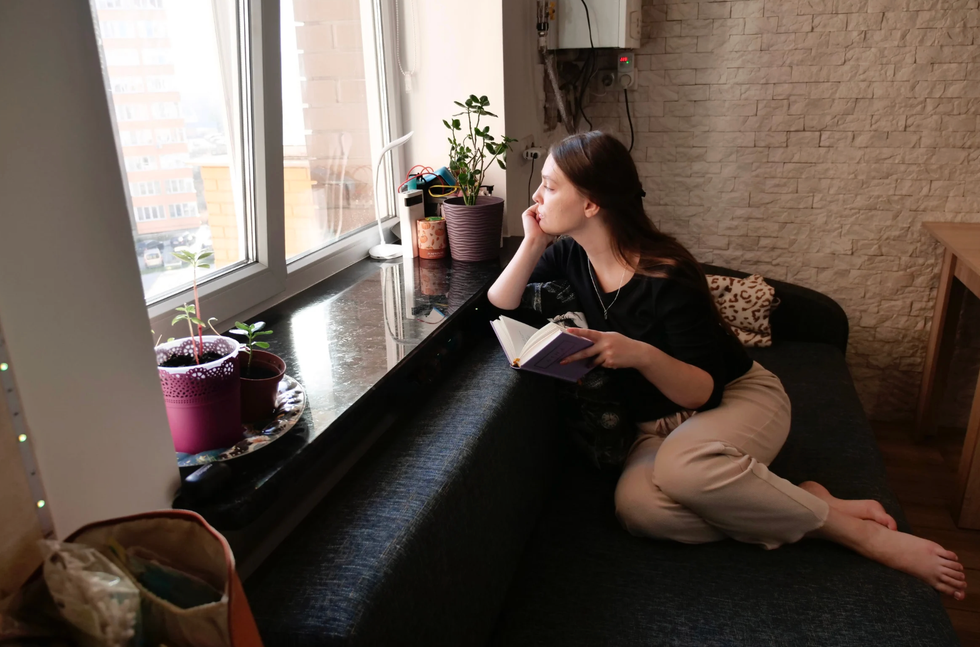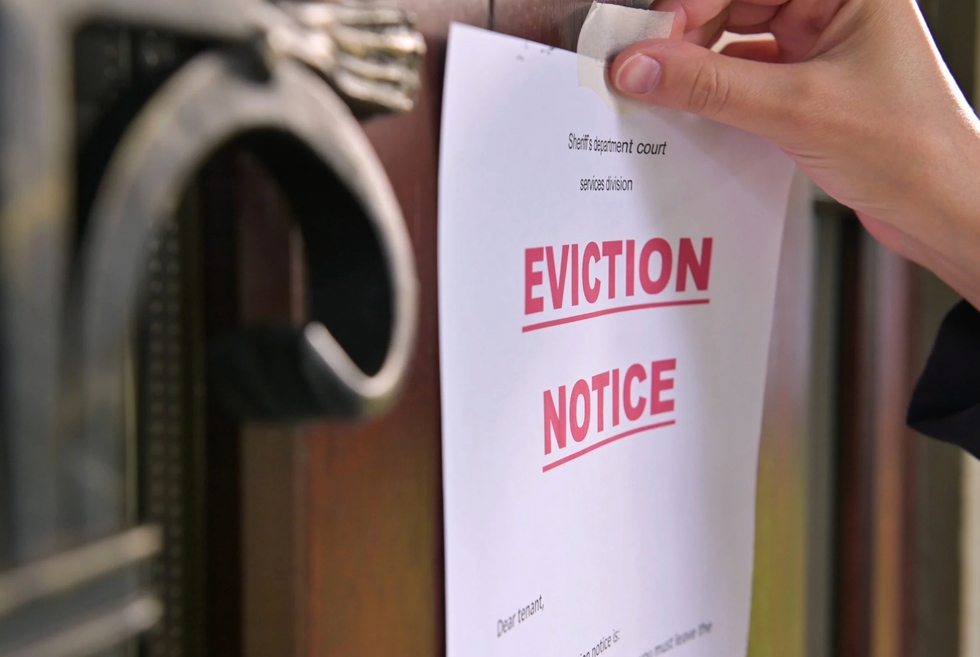Last week, nations gathered for the latest round of the United Nations’ annual climate talks in Bonn, Germany, and the U.S. delegation — once feared, once revered — became a “sideshow.” The State Department’s team was small and faces from the executive branch are mostly staying out of sight. (By contrast, when he was Secretary of State, John Kerry would routinely walk the corridors and stop and chat with activists and campaigners.) Two years after the Paris Agreement was adopted, and one year after Donald “global warming was created by and for the Chinese” Trump’s surprising electoral victory, the U.S. held just one event — a panel that awkwardly promoted fossil fuels as America’s plan to address climate change, a problem that the administration won’t admit is real.
The event — received with equal parts mockery, outrage, and a protest — became something of a symbol for America’s two-faced position on climate change. On one hand, here was a panel discussion (called, no joke, “The Role of Cleaner and More Efficient Fossil Fuels and Nuclear Power in Climate Mitigation”) that featured reps from Peabody Coal, the world’s largest privately owned coal company (which happened to go bankrupt last year), and Tellurian, a natural gas company currently investing heavily in export infrastructure. Yet, on the other hand, before the event, two sitting governors from the West Coast, Kate Brown of Oregon and Jay Inslee of Washington, entered the room, turned to the press, and gave a statement denouncing the official U.S. position. “This is a sideshow, a blip,” said Inslee.
Brown and Inslee are two prominent members of what some are calling the “shadow delegation” that represented America at COP23. Their ranks include California Governor Jerry Brown, close to a dozen California state legislators (the West Coast’s leadership on climate issues was often referred to here as the “blue wall”), and state legislators from Minnesota, New York, Massachusetts, and elsewhere. Their goal: to show foreign leaders and negotiators that the majority of Americans want to remain in the Paris Agreement and that at least 20 states and 50 major cities are still committed to achieving America’s emissions reduction pledges.
[quote position="left" is_quote="true"]This is a sideshow, a blip.[/quote]
Alongside the politicos were the U.S. People’s Delegation, a group of self-described “everyday Americans” including people from frontline communities, indigenous communities, communities of color, youth, advocates, and policymakers. Or, you know, a real cross-section of America. They stood up 20 minutes into the White House panel and starting singing in chorus to the tune of “God Bless the USA” with alternative lyrics about “coal greed” and “keeping it in the ground.”
Let’s hear from some of the leaders of the People’s Delegation and state leaders speaking out to spite Trump. (These comments have been slightly edited for length and clarity.)
Kate Brown, governor of Oregon, on how states can work together and lead.
“President Trump is rejecting the economy of the future, and states like Oregon and Washington are moving forward. We’re doing it through aggressive public policy and we’re doing it through executive orders. Just this week, I signed two executive orders that will decrease the amount of carbon emissions from our buildings and increase the amount of electric vehicles on the road. States are providing the kind of leadership we need to have to keep our country moving forward.
I believe in the power of we. That all of us working together can have a much greater impact than all of us working alone. We are a small state of 4 million people; we were one of the first members of the U.S. Climate Alliance, the 15 states working together to reduce greenhouse gas emissions and also meet the goals of the Paris Accord. We also have been working for a number of years on the Pacific Coast Collaborative with our West Coast states and British Columbia, and together we comprise one-fifth of the world’s economy, a GDP of $3 trillion. It’s extraordinary the work we’re doing together — building an electric vehicle charging network all along the West Coast and working to make sure we have a grid that’s integrated. By working together through partnerships we can move forward.”
Varshini Prakash, organizer with the Sunrise Movement and a leader with the U.S. People’s Delegation, on showing the real face of America to the international climate community.
“We are part of the U.S. People’s Delegation, which is a group of everyday Americans, people who are being impacted by the climate change and the fossil fuel industry right now. U.S. People’s Delegation is a lot more representative of what Americans really need to do right now than the Trump administration is, and we look a lot more like what America looks like than the Trump administration as well.
We thought it was a disgrace and an embarrassment that the Trump administration was peddling dirty energy at exactly the moment we needed our countries and the world to come together and take urgent action to prevent catastrophic climate change.
We are the only country in the entire world to refuse to support the PA, and we wanted to showcase that the Trump administration is alone, that the people of America are behind the Paris Agreement.”
Cristina Garcia, a California State Assembly member, on rejecting the term “shadow delegation” and how states can act despite Trump.
“America is still in. Trump is just one individual and he doesn’t make decisions for all of us.
We are not a shadow delegation. We are the delegation, we are ‘We the people of the United States,’ and so I’d like to give us equal footing. But we’re out here in Bonn to talk about what we’ve done, whether it’s in California, whether it’s in Pittsburgh or New York or Virginia, we have diversity of voices, and so we’re working to make sure that we don’t leave anyone behind.
So far we have a coalition in the U.S. of cities and states that includes about 60% of the population. If every state governor, if every county, if every city is involved, it doesn’t matter what the federal government is doing. This is something amazing in America. You have a lot of power at the local level. That’s what we’re doing here, we’re reminding people that states and cities have a lot of power and can be a counterbalance to the federal government.”
[quote position="full" is_quote="true"]America is still in. Trump is just one individual and he doesn’t make decisions for all of us.[/quote]
Frank Ettawageshik, Little Traverse Bay Bands of Odawa Indians, on the vast network of tribal governments and their support.
“I had the pleasure of being able to convey a resolution today to the We Are Still In organization that was passed by the Tribal Council and signed by the chairwoman and sent to me so that I could deliver it today. This resolution builds on a resolution that my tribe passed to uphold the Kyoto Protocols, where we worked hard to do that even though the United States wouldn’t sign on. Likewise, we’re in a situation even though the U.S. signed onto Paris, there’s talk of pulling out. But we believe that tribal governments and many — hundreds and hundreds — of other governments and businesses and other entities all across the United States are endorsing the goals of the Paris Accord and are pledging to meet the goals of that accord.
Tribes are likewise among that because one person cannot save only their part of the world. We either save the whole world or we don’t save it. We all have to work together. The idea that we can all pull together to do this is really important.”

















 Tow truck towing a car in its bedCanva
Tow truck towing a car in its bedCanva  Sad woman looks at her phoneCanva
Sad woman looks at her phoneCanva  A group of young people at a house partyCanva
A group of young people at a house partyCanva  Fed-up woman gif
Fed-up woman gif Police show up at a house party
Police show up at a house party 
 A trendy restaurant in the middle of the dayCanva
A trendy restaurant in the middle of the dayCanva A reserved table at a restaurantCanva
A reserved table at a restaurantCanva Gif of Tim Robinson asking "What?' via
Gif of Tim Robinson asking "What?' via 

 An octopus floating in the oceanCanva
An octopus floating in the oceanCanva


 A woman relaxes with a book at homeCanva
A woman relaxes with a book at homeCanva An eviction notice is being attached to a doorCanva
An eviction notice is being attached to a doorCanva Gif of Kristen Bell saying 'Ya basic!' via
Gif of Kristen Bell saying 'Ya basic!' via